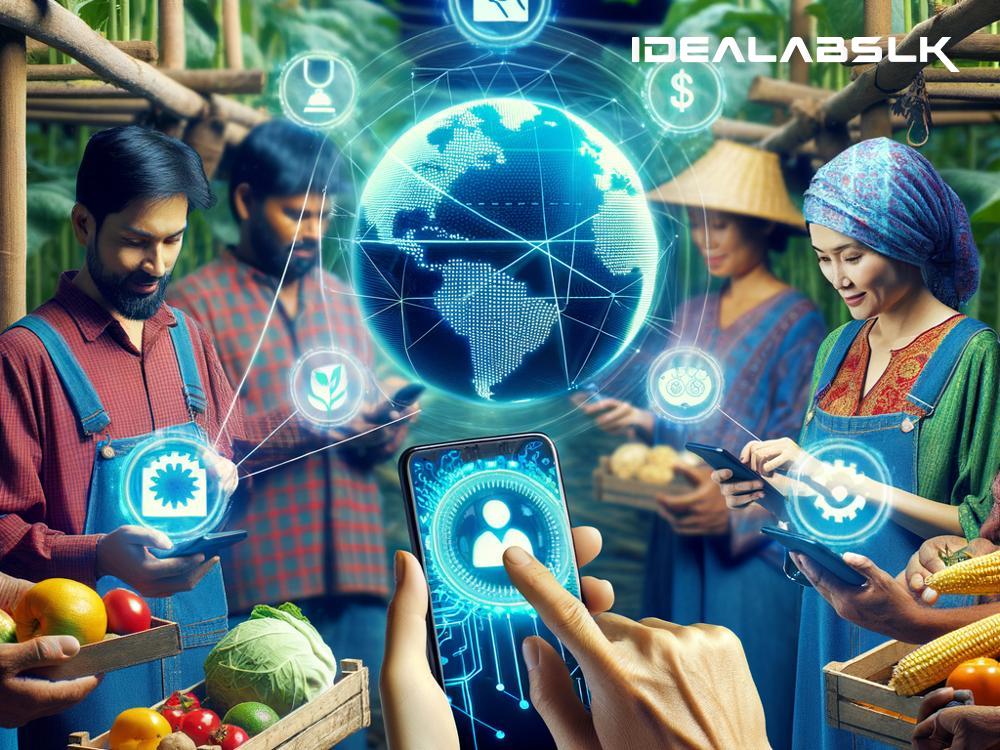Blockchain: Transforming Fair Trade Certification for Global Foods
In the vast world of global food production and consumption, the terms "fair trade" and "blockchain" might seem out of place together at first glance. But, when you dive into the intricacies of ensuring ethical practices in the food supply chain, the marriage of these two concepts becomes a game-changer. This article will explore how blockchain technology is revolutionizing fair trade certification in the global food industry, ensuring transparency, trust, and fairness in every bite you take.
Understanding the Basics
Before we delve deep into the marvels of blockchain in fair trade certification, let's quickly unravel what these terms mean on their own. Fair trade is a movement aimed at achieving better trading conditions, ensuring fair pay and ethical treatment for producers of goods, especially in developing countries. On the other hand, blockchain is a form of technology known for its role in cryptocurrencies. It's essentially a digital ledger that records transactions across many computers in such a way that the registered transactions cannot be altered retroactively.
So, how do these two seemingly different concepts come together in the context of global food trade? The answer lies in the challenges plaguing the fair trade certification process.
Challenges in Fair Trade Certification
Fair trade certification has always had its heart in the right place, striving to make the world a fairer place. However, certifying products as fair trade is not without its challenges. This often involves a lot of paperwork, trust in multiple parties, and a complex supply chain that can sometimes span continents. Ensuring that every stage of production, from the farm to the supermarket shelf, adheres to fair trade principles can be daunting.
Enter blockchain technology.
Blockchain: The Game Changer
Blockchain technology is redefining the transparency and efficiency of fair trade certification in several compelling ways:
-
Traceability: With blockchain, every transaction or movement of goods along the supply chain can be recorded in real time. This means that a coffee bean harvested in Ethiopia can be tracked at every stage until it reaches your local café. For consumers and fair trade advocates, this provides undeniable proof of the product's journey and its adherence to fair trade standards.
-
Reduced Fraud: One of the biggest challenges in fair trade is ensuring that certificates are not falsified and that everyone in the supply chain is actually adhering to fair trade practices. Blockchain's nature as an immutable ledger means once something is recorded, it cannot be altered. This drastically reduces the possibility of fraud and misrepresentation, making fair trade certifications more reliable.
-
Efficiency and Cost Reduction: Traditionally, certifying products as fair trade involves a lot of paperwork and intermediary processes, which can be time-consuming and costly. Blockchain streamlines these processes by providing a single, tamper-proof record of transactions, which reduces the need for intermediaries and, by extension, lowers costs.
-
Empowering Producers: At the heart of fair trade is the empowerment of producers and workers in developing countries. Blockchain technology ensures direct transactions between producers and buyers, potentially increasing producers' earnings. It also provides better transparency on how much of the premium paid for fair trade products actually reaches the producers.
Real-world Applications
The potential of blockchain in transforming fair trade certification is not just theoretical. Several initiatives and companies are already leveraging this technology to make a difference. For example, some coffee companies use blockchain to provide their customers with detailed information about the coffee's origin, when it was harvested, and how much the farmers were paid, all by scanning a QR code on the packaging.
The Road Ahead
The integration of blockchain technology into fair trade certification is still in its infancy, but the potential it holds is immense. As consumers become more conscious of the ethical implications of their purchases, the demand for transparent, fair trade-certified products will likely increase. Blockchain can play a pivotal role in meeting this demand by ensuring authenticity, transparency, and fairness.
Conclusion
The convergence of blockchain technology and fair trade certification is a beacon of hope for a more ethical and transparent global food industry. By leveraging blockchain's capabilities, the fair trade movement can overcome its current limitations, ensuring that fair trade lives up to its promise of fairness and equity for all. As we move forward, it will be fascinating to see how this innovative technology continues to transform and uplift global food supply chains, one block at a time.

